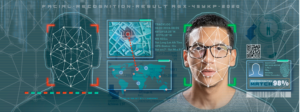Artificial Intelligence (AI) is revolutionizing various industries, and education is no exception. As we step into the future, the integration of AI in education promises to reshape the way we learn, teach, and interact within educational environments. In this blog, we will explore the current and potential applications of AI in education, as well as the benefits and challenges that come with it.
Current Applications of AI in Education
Personalized Learning
AI algorithms analyze students’ learning patterns and tailor educational content to meet individual needs. Adaptive learning platforms, like DreamBox and Knewton, are prime examples.
During the AI+Education Summit held at Stanford University on February 15, 2023, researchers, students, and industry leaders assembled to discuss how AI can be used to enhance teaching and learning in ethical, equitable, and safe ways. The following key points were highlighted in an article published by the Stanford University Human-Centered Artificial Intelligence (HAI):
- AI has the potential to revolutionize education by offering personalized learning, automated grading and feedback, intelligent tutoring systems, and language processing for learning disabilities.
- AI poses significant challenges and risks, such as equity concerns, data privacy and security, loss of human connection, and overreliance on standardized testing.
- The summit highlighted the need for interdisciplinary collaboration, stakeholder engagement, and ethical design to ensure that AI is used responsibly and inclusively in education.
- The summit also showcased some of the cutting-edge research and innovations in AI and education from Stanford faculty and researchers, such as generative AI, AI-enriched classrooms, and AI literacy.
Automated Grading and Feedback
AI-driven tools, such as Gradescope, assist educators in automating the grading process for assignments and exams. This not only saves time but also provides students with timely feedback; however, automated grading and feedback may not capture the personal nuances of human evaluation, such as creativity, critical thinking, and/or collaboration.
Intelligent Tutoring Systems
AI tutors, like Carnegie Learning, guide students through various subjects, adapting to their pace and offering additional support where needed. According to an article published by the American Psychological Association in 2015, studies have shown that intelligent tutoring systems can improve student learning outcomes and motivation.
Language Processing for Learning Disabilities
AI assists in identifying and supporting students with learning disabilities. Tools like IBM Watson analyze language patterns to recognize signs of conditions like dyslexia. For example, AI can provide text-to-speech or speech-to-text features, personalized feedback, and/or adaptive exercises for students with dyslexia, as highlighted in this article written by Dyslexic Advantage in 2023.
Potential Benefits of Expanding AI in Education
Customized Learning Paths
AI enables the creation of personalized learning paths for students, accommodating diverse learning styles and speeds. By providing students with optimal levels of challenge and support, customized learning paths can foster student engagement, retention, and achievement.
Efficiency and Time Savings
Automated grading and administrative tasks free up educators’ time, allowing them to focus more on interactive and engaging teaching methods. For instance, educators can use AI to facilitate project-based learning (a teaching method that involves students working on projects that are based on real-world and authentic problems, questions, or challenges for an extended time), collaborative learning (the educational approach of using groups to enhance learning through working together), or inquiry-based learning (a form of active learning that starts by posing questions, problems or scenarios).
Early Intervention
AI can identify learning gaps and provide early intervention strategies, ensuring that students receive timely support to address challenges. For instance, AI can detect when students are struggling with a concept, skill, or topic, and provide them with proactive remedial instruction, feedback, or scaffolding to prevent them from getting behind in their schoolwork.
Global Accessibility
Online education platforms powered by AI make quality education accessible globally, breaking down geographical barriers; however, online education also requires adequate infrastructure, connectivity, and digital literacy, which may not be available or affordable for all learners.
Challenges and Considerations
Equity Concerns
The use of AI in education raises concerns about equity. Students with limited access to technology may face disadvantages compared to their peers. For instance, students who lack reliable internet services, or software may not be able to access online learning platforms, AI tools, or digital resources.
Data Privacy and Security
Gathering and utilizing student data for AI-driven educational tools must be done with the utmost consideration for privacy and security. A student’s data may be potentially exposed to unauthorized access, misuse, or manipulation by hackers, corporations, or governments, as using generative AI tools may involve sharing and processing personal and conversational data, which could compromise one’s privacy. Educators should be careful not to reveal any confidential information about themselves, their coworkers, or their students when using public AI systems. This includes, but is not limited to, private messages, identity information, health history, academic results, emotional state, and financial situation.
Loss of Human Connection
While AI can enhance certain aspects of education, the importance of human connection in the learning process should not be underestimated. Using AI systems more often may reduce the amount of social contact that students have with their teachers and peers. Kids might also start preferring these AI chat systems over their real friends. This could make the problem of loneliness, isolation, and disconnection, which the U.S. Surgeon General has called a public health crisis, even more severe.
Overreliance on Standardized Testing
The emphasis on AI-driven assessment tools may lead to an over-reliance on standardized testing, potentially overlooking other essential aspects of learning, such as a student’s level of creativity, critical thinking, collaboration, or communication skills.
Conclusion
The integration of AI in education holds immense potential to revolutionize traditional teaching methods, offering personalized learning experiences and efficient educational processes; however, it’s crucial to approach these advancements with a mindful consideration of the ethical, privacy, and equity implications. Striking a balance between technological innovation and preserving the human touch in education will be key to unlocking the full benefits of AI in shaping the future of learning.




